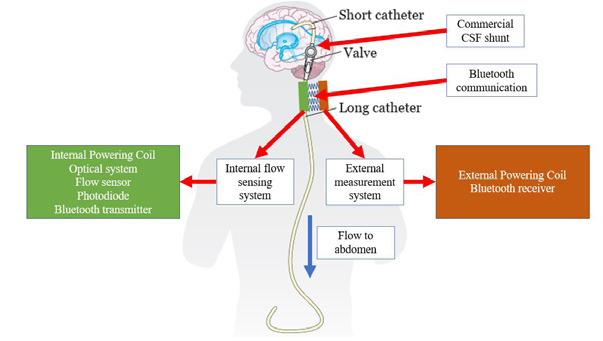
Figure 1

Figure 2

Biomedical Engineering
Team 23
Team Members |
Faculty Advisor |
Hyuno Chang |
Kazunori Hoshino Sponsor Biomedical Engineering |
sponsored by

Hydrocephalus is a condition that affects all populations and results in the buildup of cerebrospinal fluid in the ventricles of the brain. Cerebrospinal fluid (CSF) is fluid produced by the brain through the choroid plexuses that is responsible for protecting the brain and spinal cord, supplying nutrients to nervous system tissue and removing waste products from cerebral metabolism. An excess of CSF in the brain can result in increased intracranial pressure and potentially lead to debilitating symptoms or even death if untreated.
The current standard of treatment for hydrocephalus is to surgically insert a shunt to drain fluid from the ventricles to the abdomen. Approximately 65,000 shunts are implanted each year, and while they are intended to be lifelong implants, they have a 40% malfunction rate within the first two years and a 98% malfunction rate at 10 years, indicating serious problems with current shunt designs. Thus, it is of high interest to develop a shunt sensor capable of monitoring the flow-rate of CSF fluid.
In this project, a novel smart shunt sensor that relies on a PDMS check valve and an optical detection system was successfully fabricated to monitor CSF flow rate. A linear relationship between light intensity and flow rate was found when artificial CSF was pumped through the microfluidic sensor using a syringe pump, proving device capabilities
